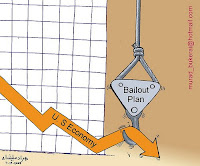
After the activist, Kathy Kelly, came to our American Studies class this past week, I decided to go on to the Amnesty International website to learn more. I came across an article that caught my eye. It discussed the need for people to speak up for their rights. The article "No room in human rights for spectators,'" focused on a woman named Irene Khan. Irene Khan is Amnesty International's Secretary General, and definitely spoke up during the Universal Declaration of Human Rights Council. She wanted people to understand that ideas need to be taken into action. People cannot expect to sit and watch horrible things happening in the world. Khan focused on the need for the United Nations Human Rights Council to use their strength to help many. She believes that they need to be the leaders for the international community, and in order to do so they need to be active. They are the voice of many. Khan thinks that people who have influence over others need to be strong and step up. The world needs to come together, but in order to do people cannot be afraid to express their ideas.
This article very much relates to the ideas of Henry David Thoreau especially in his writing of "Civil Disobedience." Thoreau believed that everyone was given a conscience for a reason. They were supposed to stand up, and tell people how they felt and what they thought. Thoreau believed that people couldn't let themselves fall into the background. Everyone is of equal importance, and everyone’s ideas are of equal importance. This article just goes to show that Thoreau's ideas still have an impact on people today.
This article very much relates to the ideas of Henry David Thoreau especially in his writing of "Civil Disobedience." Thoreau believed that everyone was given a conscience for a reason. They were supposed to stand up, and tell people how they felt and what they thought. Thoreau believed that people couldn't let themselves fall into the background. Everyone is of equal importance, and everyone’s ideas are of equal importance. This article just goes to show that Thoreau's ideas still have an impact on people today.






